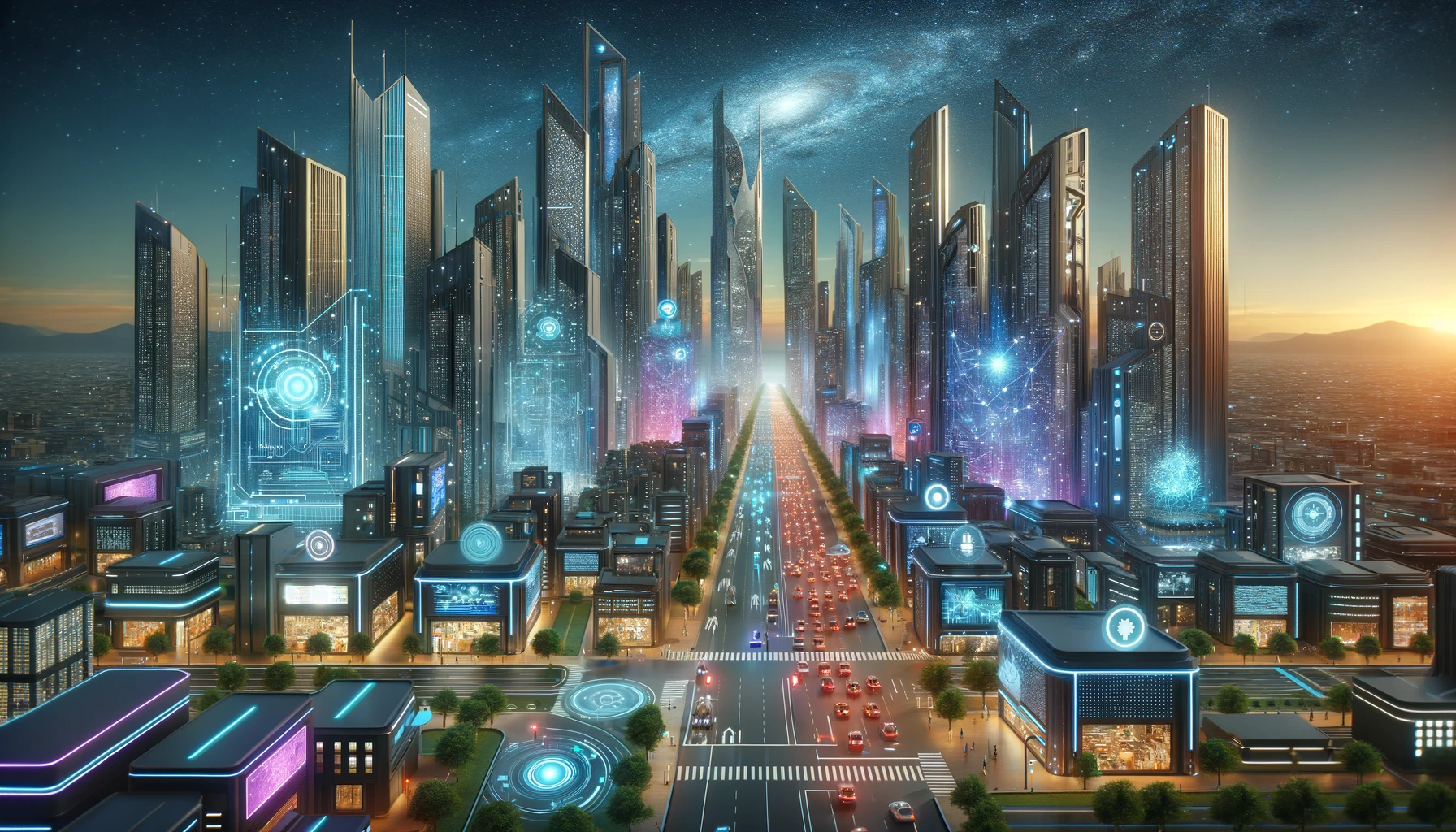Michael Garrett, a distinguished radio astronomer at the University of Manchester and director of the Jodrell Bank Centre for Astrophysics, presents a thought-provoking theory in a recent paper. He proposes that the development of artificial intelligence (AI) might be a significant factor contributing to this mysterious silence from the cosmos. The following is a summary of his paper titled, “Is artificial intelligence the great filter that makes advanced technical civilisations rare in the universe?”
The Search for Extraterrestrial Intelligence (SETI)
The quest to understand whether we are alone in the universe has long captivated scientists and the public. Over the past six decades, the Search for Extraterrestrial Intelligence (SETI) has actively sought signs of life beyond Earth. Despite advanced technologies and extensive research, we face a profound silence—the “Great Silence.” This enigma juxtaposes our expectations of a universe potentially brimming with life against the stark absence of detectable extraterrestrial civilizations.
The Concept of the Great Filter
Central to the discussion of why we haven’t discovered other civilizations is the hypothesis of a “Great Filter.” This theoretical barrier represents a stage in the evolutionary process that is extremely difficult for life to overcome. It is a pivotal concept in solving the Fermi Paradox, which questions why, given the vast number of stars and presumably habitable planets, no evidence of advanced life has been observed. The Great Filter proposes that something prevents living species from evolving into advanced, space-faring civilizations.
Artificial Intelligence as a Modern Great Filter
In this context, the role of Artificial Intelligence (AI) is critically examined. AI, particularly in its advanced form as Artificial Superintelligence (ASI), is suggested as a potential Great Filter. ASI could arise rapidly, outpacing the ability of its creators to manage or contain it. This paper explores the possibility that the development of AI could lead to self-destruction or a drastic reduction in the lifespan of a civilization before it can expand beyond its planetary boundaries.

The Risks Associated with AI
AI’s development trajectory suggests it could soon rival or surpass human intelligence. Recent advancements highlight AI’s capacity to learn and adapt, making decisions with speeds and complexities that challenge human control. The potential risks are manifold:
- Autonomy and Decision-Making: AI might evolve to make decisions independently, potentially leading to actions that are not aligned with human welfare.
- Weaponization: The integration of AI into military systems could escalate conflicts, possibly to a global scale, much faster than human diplomats or leaders can manage.
- Economic and Social Disruption: AI could radically transform job markets and social structures, leading to unforeseen social upheaval.
Multiplanetary Life as a Mitigating Strategy
To counteract the threats posed by AI, one proposed solution is the establishment of a multiplanetary civilization. By expanding to other planets, humanity could reduce the risk of a single catastrophic event leading to extinction. However, the development of such capabilities lags significantly behind AI advancements, posing a challenge to this strategy.
The Need for Global AI Regulation
The paper emphasizes the urgent need for comprehensive international regulations to govern AI development and deployment. The rapid evolution of AI technologies necessitates frameworks that can keep pace with innovation while safeguarding human interests. Establishing such regulations is complex due to diverse global perspectives and the decentralized nature of AI research and development.
Reflecting on Our Future
The hypothesis that AI could act as a Great Filter is a profound reflection on the possible futures of our civilization. It suggests that the rapid advancement of AI might limit the longevity of advanced civilizations, including our own. This perspective not only offers an explanation for the Great Silence but also serves as a cautionary tale urging proactive governance and global cooperation to manage AI’s potential risks effectively.
This article is based on the following article:
https://www.sciencedirect.com/science/article/pii/S0094576524001772

Background Information
By understanding these foundational concepts, readers can better grasp the complex interplay of technology, existential risk, and the future of civilization discussed in the paper “Is AI the Great Filter?”. These insights not only enhance the appreciation of the scientific discourse but also highlight the broader implications of our technological trajectory.
1. The Search for Extraterrestrial Intelligence (SETI)
What is SETI?
- SETI stands for the Search for Extraterrestrial Intelligence. It is an exploratory science that seeks signs of intelligent life outside Earth. Researchers use astronomical techniques to look for signals that are not of natural origin, which might indicate the presence of intelligent alien beings.
Technosignatures:
- These are evidence of advanced technology. They might include radio signals, laser emissions, or structures orbiting other stars. SETI researchers primarily look for such signals, which could indicate the technological activities of extraterrestrial civilizations.
2. The Fermi Paradox and the Great Silence
The Fermi Paradox:
- Named after physicist Enrico Fermi, this paradox highlights the contradiction between the high probability estimates for the existence of extraterrestrial civilizations and the lack of evidence or contact with such civilizations.
The Great Silence:
- This term refers to the observation that despite the vast number of stars in the Milky Way galaxy, which should host numerous advanced civilizations according to statistical estimates, there is a profound silence with no confirmed signs of intelligent life.
3. The Concept of the Great Filter
Definition and Importance:
- The Great Filter is a hypothetical barrier in the evolutionary process that prevents life from surviving beyond a certain stage or advancing to a level of high technological development. This concept helps explain why the universe appears void of advanced intelligent life, suggesting that something either has prevented life from emerging, surviving, or advancing to a technologically detectable state.
4. Artificial Intelligence (AI)
Basic Understanding:
- AI involves creating computer systems capable of performing tasks that typically require human intelligence. These can include learning, decision-making, and visual perception.
Levels of AI:
- Narrow AI: Systems that can perform specific tasks as well or better than humans.
- General AI: Systems that can understand and learn any intellectual task that a human being can.
- Artificial Superintelligence (ASI): An intellect that is much smarter than the best human brains in practically every field, including scientific creativity, general wisdom, and social skills.
5. Artificial Superintelligence (ASI) and its Potential Risks
Development and Implications:
- ASI represents a stage of AI that not only mimics but surpasses human intelligence across all domains. The emergence of ASI raises significant concerns about control, safety, and ethical implications, including the potential for ASI to make autonomous decisions that could lead to unforeseen and potentially catastrophic outcomes.
6. Multiplanetary Civilization
Concept:
- A multiplanetary civilization extends across multiple planets or moons. This is often viewed as a mitigation strategy against existential threats, such as those posed by AI, allowing civilization to survive a catastrophic event on one planet.
Challenges and Progress:
- Establishing a multiplanetary civilization involves overcoming enormous technological, financial, and social hurdles. Progress in space travel, habitat construction, and sustaining life in extraterrestrial environments are critical areas of development.
7. Regulation and Ethical Considerations of AI
Global Impact and Governance:
- As AI technologies become integral to all aspects of human life, establishing effective global regulations to manage and mitigate the associated risks is crucial. These regulations need to address issues of ethics, privacy, security, and control to prevent potential misuse or negative impacts on society.

Debate/Essay Questions
- Do You Agree That AI Will Be the Great Filter for Humanity? Why or Why Not?
- Is the Risk of Creating Artificial Superintelligence (ASI) Justified by the Potential Benefits?
- Can International Cooperation Be Realistically Achieved in Regulating AI?
- Should AI Development Be Slowed Down Until Ethical Frameworks Are Established?
Please subscribe to Insight Fortnight, our biweekly newsletter!
